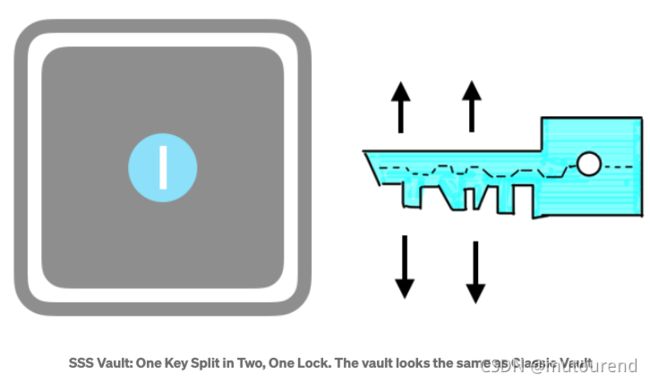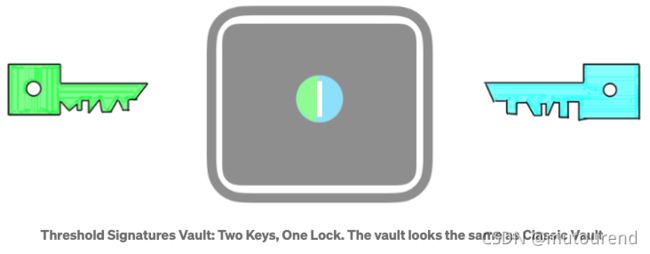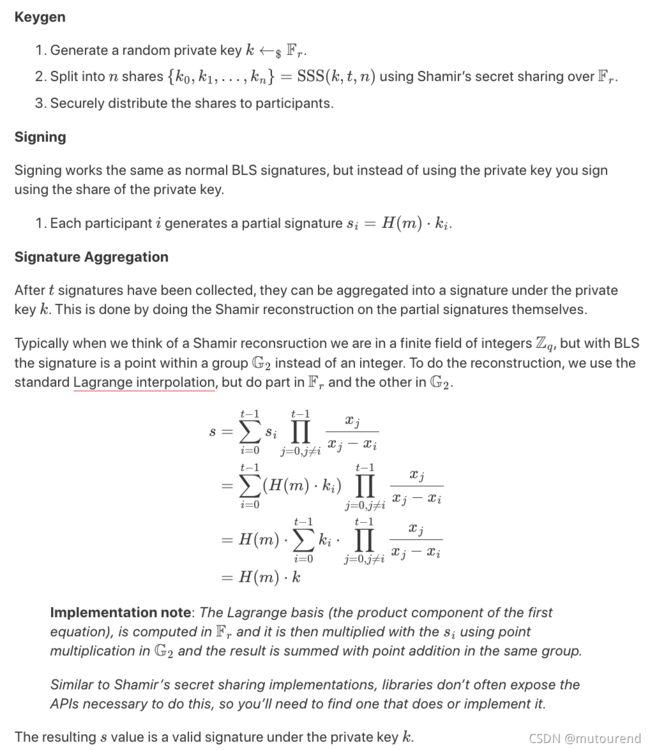- CNN 猫狗识别:从理论到实战的深度解析
爱熬夜的小古
cnn深度学习人工智能
在计算机视觉领域,卷积神经网络(ConvolutionalNeuralNetwork,CNN)凭借其强大的特征提取和模式识别能力,成为图像分类任务的主流技术。猫狗识别作为经典的图像分类问题,不仅能帮助我们理解CNN的工作原理,还能为实际应用提供技术支持。本文将深入探讨CNN在猫狗识别中的应用,从理论基础到实战代码,带你全面掌握这项技术。一、CNN基础理论概述(一)CNN的核心组件卷积层:是CNN的
- 一文搞懂怎么入门大模型
在人工智能飞速发展的当下,大模型已然成为推动众多领域创新变革的核心力量。无论是在智能客服、内容创作,还是数据分析、科学研究等方面,大模型都展现出了令人瞩目的能力。对于渴望踏入大模型领域的初学者而言,构建一个系统且全面的入门路径至关重要。接下来,我们将以DeepSeek为例,详细阐述如何系统地入门大模型。一、理论基础:搭建认知框架在深入实践之前,理解大模型的基础理论是关键。大模型,通常指具有海量参数
- 品诺维新硬件实习生试题解析与答案
本文还有配套的精品资源,点击获取简介:本文档为苏州品诺维新公司硬件开发实习生面试准备材料。包含了三极管工作状态相关的面试题目及其解析,三极管的三种工作状态(截止、放大、饱和)被详细解释,并指出正确答案。考生需深入理解三极管的工作原理,这不仅是电子技术的基础理论,也是实际电路设计与故障排查的基础。通过理解三极管特性,可以更好地应用于开关电路、放大电路及模拟数字转换等场景。考生在准备面试时,应全面复习
- FPGA 47 ,MIG 内存接口生成器深度解析( FPGA 中的 MIG 技术 )
北城笑笑
fpga开发fpga
目录前言一、基础理论1.1MIG介绍1.2结构框架1.2.1主要模块①用户接口层(UserInterfaceLayer)②控制逻辑层(ControLogicLayer)③校准逻辑(CalibrationLogic)④初始化与时序控制(Initialization&TimingControl)⑤物理层接口(PHY–PhysicalLayer)⑥IO引脚驱动(引脚分配与IO配置:Pinout&IOSt
- 深度剖析 Linux ip neigh:邻居表项的查看与添加实践
清风 001
Linux系统linuxtcp/ipphp
目录一、引言二、邻居发现基础理论(一)IPv4与ARP协议(二)IPv6与NDP协议(三)邻居表项的作用与意义三、ipneigh命令基础(一)命令来源与所属工具集(二)基本语法结构四、邻居表项的查看实践(一)查看全部邻居表项1.命令执行与输出解析2.生产场景应用(二)查看特定网络接口的邻居表项1.命令格式与示例2.生产场景价值(三)查看特定IP地址的邻居表项1.命令操作与解析2.生产场景实践(四)
- 动手实践OpenHands系列学习笔记9:容器安全加固
JeffWoodNo.1
笔记安全
笔记9:容器安全加固一、引言容器技术虽然提供了环境隔离,但仍存在潜在的安全风险。本笔记将探讨容器安全的基本原则,分析OpenHands中的安全考量,并实现一套容器安全加固方案,确保在保持功能性的同时提升系统安全性。二、容器安全基础理论2.1容器安全风险分析逃逸风险:容器突破隔离边界访问宿主机特权提升:获取比预期更高的系统权限资源耗尽:DoS攻击导致系统资源枯竭镜像安全:镜像中潜在的漏洞和恶意代码供
- 逻辑结构学派一(五个基础理论)
刘海东刘海东
人工智能
逻辑结构学派一(五个基础理论)作者:刘海东,中国广东技术师范大学摘要本篇论文通过《逻辑结构学派的宗旨》、《逻辑结构学》、《逻辑工程学》、《逻辑方程结构图理论》、《仿生逻辑理论》五个领域的研究提出《逻辑结构学派的宗旨》、《主观能动性结构》、《主观能动性结构工程》、《赋予生命的逻辑方程结构图》、《仿生逻辑》五个基础经典理论,让人工智能、机器人、智能社会三个主体的基础研究有了方向、方法和判断标准。关键词
- 如何短时间内学会软件测试,从事软件测试工作?
计算机专业背景学习软件测试并找到工作是一条相对清晰的路径,以下是系统化的学习规划和求职建议:一、明确学习方向(选对赛道)软件测试分为多个方向,建议根据兴趣和市场需求选择:功能测试:适合入门,掌握测试基础理论和流程(薪资6-10k)。自动化测试:需求量大,需掌握Python/Java、Selenium/Appium等工具(薪资10-15k)。性能测试:技术门槛较高,需学习JMeter、LoadRun
- 用这些中医 APP,开启免费自学之旅!问止精一书院
2501_92057656
自学中医
零基础学中医学中医如何入门免费学中医!问止精一书院链接:https://tool.nineya.com/qrcode/1iv54b4ts在众多中医学习网站中,问止中医凭借专为零基础者打造的免费课程脱颖而出,成为中医入门者的理想之选。对于想要学习中医却毫无基础的人来说,选对平台至关重要。问止中医深知零基础学习者的痛点,其免费报名课程从中医基础理论讲起,像阴阳五行、脏腑经络等核心知识,都以通俗易懂的方
- 软件测试面试前该准备些什么?
AIZHINAN
面试软件测试面试软件测试面经简历包装面试技巧
在软件测试面试前,充分的准备可以显著提升你的信心和表现。以下是需要重点关注的准备方向,分为技术能力、项目经验、面试技巧和软技能四个部分:一、技术能力准备基础理论软件测试基本概念:测试类型(功能、性能、安全、兼容性等)、测试阶段(单元测试、集成测试、系统测试等)。经典面试题:黑盒vs白盒测试的区别?什么是边界值分析、等价类划分?Bug的生命周期是怎样的?如何设计测试用例?(举例:测试一个登录页面)测
- 特斯拉及新能源车企笔试面试题型解析上-21期
启芯硬件笔记
经验分享PCBEMI硬件工程面试职场和发展
本专栏预计更新90期左右。当前第21期-特斯拉硬件.特斯拉作为全球领先的电动汽车、能源存储和人工智能公司,其硬件工程师岗位的招聘通常包括笔试和多轮技术面试,考察领域涵盖数字电路设计、模拟电路、嵌入式系统、电动车技术和自动驾驶等。由于特斯拉的创新性和技术领先地位,其面试问题可能更加注重实际应用和问题解决能力。笔试通常旨在考察候选人的基础理论知识、问题分析能力、电路设计与调试经验、以及对相关工具和方法
- 水文学模型学习笔记:马斯京根(Muskingum)河道汇流算法
Lunar*
水文算法学习笔记
引言在水文学和水资源管理中,河道汇流演算是一个至关重要的环节。它用于预测洪水波在河道中向下游传播时的形态变化,是进行洪水预报、水库调度和防洪规划的基础。马斯京根法(MuskingumMethod)是其中最经典和应用最广泛的河道汇流计算方法之一。本文将从马斯京根法的基础理论出发,推导其演算方程,并重点解析一种更稳定和精确的改进方法——分段连续马斯京根法,最后提供并解读一个完整、鲁棒的Python实现
- 【笔记8】嵌入式系统中的内存分段
玉~你还好吗
嵌入式系统嵌入式C语言微机原理
前几天参加了某外企二面,项目讲完没继续对着质询,上来就问了一道关于嵌入式系统堆栈段分配的问题。当时就已经知道这把又要塔西狼......所以今天赶紧查资料看网课,总算是把这块基础理论补齐了。在嵌入式系统中,内存管理和程序结构与Windows系统类似,但由于资源受限(如内存容量小、处理器性能低),需要更精细的优化。嵌入式系统的内存分段规则如下表所示:低地址CodeSegment(代码段).text程序
- 贪心算法详解:理解贪心算法看这一篇就够了
爪哇学长
Java编程基础及进阶贪心算法算法javapython
文章目录1.贪心算法的基础理论1.1什么是贪心选择性质1.2证明贪心选择性质2.设计步骤2.1定义问题和目标2.2确定数据结构2.3排序和选择策略2.4迭代与决策2.5终止条件3.实例详解3.1活动选择问题3.2分数背包问题3.3最小生成树(Kruskal算法)1.贪心算法的基础理论1.1什么是贪心选择性质贪心选择性质是指一个全局最优解可以通过一系列局部最优的选择构建出来。这意味着在做出每个选择时
- FVCOM 潮流、波浪、泥沙、水质、温盐、染色剂、粒子示踪、嵌套、背景流、自动化全流
weixin_贾
水文水资源水文模型集合气象人必备模型水质数值模拟FVCOM三维水质计算染色剂
【内容简介】:第一章、FVCOM基础理论1、主流海洋数值模式及特点介绍2、FVCOM控制方程介绍3、FVCOM数值方法介绍4、FVCOM程序计算流程介绍5、FVCOM求解过程推导详解第二章、FVCOM运行环境部署1、虚拟机安装及配置2、Linux系统安装配置3、Linux系统下FVCOM常用命令介绍4、INTEL编译器安装配置5、OPENMPI安装配置6、NETCDF库安装配置7、Linux环境变
- FVCOM模型基础理论、运行环境部署、三维水动力、温盐模拟、波浪模拟、泥沙模拟、示踪粒子模拟、染色剂交换模拟及水质数值模拟全过程
小艳加油
水资源FVCOM水环境水质波浪泥沙
近年来,随着计算技术的发展和对海洋、水环境问题认识的加深,数值模拟技术在海洋、水环境等科学研究中的应用越来越广泛。FVCOM因其独特的优点,成为研究海洋动力过程、污染物扩散、水质变化等问题的重要工具。作为一种基于有限体积法的数值模型,以其精确的计算方法和强大的适应性,广泛应用于水环境、潮流、温盐、波浪、泥沙等多种过程的模拟。FVCOM采用非结构化网格,可以灵活地适应复杂地形和不规则边界,这使得它在
- FVCOM基础理论+模型安装、运行环境部署、三维水动力、温盐模拟、波浪模拟、泥沙模拟、示踪粒子模拟、染色剂交换模拟及水质数值模拟的全过程
小新很忙
水文算法经验分享
近年来,随着计算技术的发展和对海洋、水环境问题认识的加深,数值模拟技术在海洋、水环境等科学研究中的应用越来越广泛。FVCOM因其独特的优点,成为研究海洋动力过程、污染物扩散、水质变化等问题的重要工具。作为一种基于有限体积法的数值模型,以其精确的计算方法和强大的适应性,广泛应用于水环境、潮流、温盐、波浪、泥沙等多种过程的模拟。FVCOM采用非结构化网格,可以灵活地适应复杂地形和不规则边界,这使得它在
- FVCOM 潮流、波浪、泥沙、水质、温盐、染色剂、粒子示踪、嵌套、背景流、自动化全流程
青春不败 177-3266-0520
海洋学fvcom海洋学海洋气象海洋水动力海洋数值模拟泥沙波浪数值模拟
FVCOM采用非结构化网格,可以灵活地适应复杂地形和不规则边界,这使得它在模拟中表现非常出色。其次基于有限体积法,确保了计算的保守性和稳定性,能够准确模拟潮流、波浪和泥沙等物理过程。第一:FVCOM基础理论1、主流海洋数值模式及特点2、FVCOM控制方程3、FVCOM数值方法4、FVCOM程序计算流程5、FVCOM求解过程推导第二:FVCOM运行环境部署1、虚拟机安装及配置2、Linux系统安装配
- 【专栏介绍】【2025算法面试通关全攻略】
再见孙悟空_
【2025算法面试通关全攻略】算法面试职场和发展机器学习算法面试题算法工程师面试面试合集
专栏定位:打造算法面试的“百科全书”,覆盖全领域、全难度、全题型无论你是刚入门的“算法小白”,还是追求技术突破的资深工程师,亦或是跨领域求职的转行者,本专栏将通过12大核心领域、300+精选试题、4类题型设计(理论/算法/编程/项目),帮你构建从基础理论到工程实践的完整知识体系,突破面试瓶颈,斩获高薪Offer!核心优势:分层训练、体系化覆盖、紧贴行业脉搏难度分级,适配不同水平基础题(40%):夯
- 智能光学计算成像技术前沿体系解析
m0_75133639
光电光学成像光子学生物医学材料科学计算成像技术全息成像研究生
当前光学成像领域正经历以人工智能为驱动的范式变革。本知识体系涵盖以下核心模块:基础理论层从计算成像物理模型(含波前分析、图像传感器噪声建模)切入,建立光学-算法联合优化理论框架,重点解析正则化逆问题求解(如ADMM算法)与神经表示(NeuralRepresentations)等前沿数学工具。AI融合层深度剖析深度学习在成像中的革新应用:端到端光学设计:通过可微光学模型(衍射/折射/复杂透镜)实现硬
- 资深Java工程师的面试题目(八)AI大模型
刘一说
后端技术栈JavaAI自说java面试人工智能
以下是针对Java面试者的AI大模型相关题目,涵盖基础理论、实际应用、代码实现和部署优化等方向:一、基础理论类题目1.Transformer架构与应用场景题目:请说明Encoder-Only、Decoder-Only和Encoder-Decoder架构的区别,并举例说明它们在AI大模型中的典型应用场景。解析:Encoder-Only(如BERT):用于理解型任务(如文本分类、问答系统)。原理:通过
- 线性代数导引:线性方程组
AI大模型应用实战
javapythonjavascriptkotlingolang架构人工智能
线性代数导引:线性方程组线性方程组是线性代数中的基本问题之一,具有广泛的实际应用背景。本篇文章将深入探讨线性方程组的基础理论,阐述其算法原理,并通过实际代码实例详细讲解具体的操作步骤。通过学习本文,你将掌握线性方程组的解法,理解其数学模型,并能够应用相关技术解决实际问题。1.背景介绍1.1问题由来线性方程组在数学、物理、工程等领域有着广泛应用。例如,在电路分析中,线性方程组描述了电路中各节点电位之
- 浙江省计算机三级网络技术全攻略
HR刀姐
本文还有配套的精品资源,点击获取简介:本复习资料详细覆盖计算机三级网络技术考试的各个方面,包括网络基础、协议标准、局域网与广域网技术、网络设计规划、设备管理、应用服务以及新兴技术,旨在提升应试者对计算机网络技术的全面理解和实践操作能力。1.计算机网络基础理论1.1计算机网络的定义计算机网络是由多个通过通信线路连接的计算机组成,它们可以共享资源和交换信息。在现代信息社会中,计算机网络已经成为一个不可
- 基于EKF的三自由度车辆定位算法解析与实践
南风寺山
本文还有配套的精品资源,点击获取简介:扩展卡尔曼滤波器(EKF)是处理非线性系统的有效算法,广泛应用于车辆定位、自动驾驶和机器人导航。本文档提供的源码针对车辆三自由度动态模型实现了EKF,通过传感器数据融合提高了车辆定位的精度。文档详细解析了EKF在车辆定位中的应用,从基础理论到算法流程,再到源码的具体实现,为开发者提供了深入学习EKF的机会,并展示了如何利用EKF实现精确的车辆定位。1.EKF基
- ChatGPT引领的AI面试攻略系列:AI全栈工程师篇
梦想的理由
深度学习chatgpt人工智能面试
系列文章目录AI全栈工程师(本文)文章目录系列文章目录一、前言二、面试题1.基础理论与数据处理2.机器学习3.深度学习4.大模型与迁移学习5.计算机视觉6.自然语言处理(NLP)7.多模态学习8.AI生成内容(AIGC)9.编程语言与工具10.模型评估与优化11.系统部署与维护12.其他前沿技术13.算法与数据结构14.软件工程15.项目管理与团队协作16.伦理和法律17.行业应用18.最新研究与
- 算法第5天|哈希表基础理论总结、有效的字母异位词LeetCode242、两个数组的交集LeetCode349、快乐数LeetCode202、两数之和LeetCode1
孟大本事要学习
算法散列表哈希算法
今日整体问题总结:1、在使用map中要注意find(x)查询的是键,而不是值2、要注意多使用迭代器来解决问题,而不是总是使用下标,要知道set、map常用的一些函数,便于简化计算。3、当判断一个值是不是出现过,要注意使用哈希表(数组、map、set要注意使用场合)哈希希表(散列表,hashtable)基础理论总结简单理解:哈希表就是一个数组,通过数组的下标索引访问数组中的元素哈希表作用:1、将一个
- 数学融智学基础理论:元子与元组的自动区分证明
geneculture
融智学全球语言定位系统全球知识定位系统算法人工智能
数学融智学基础理论之一邹晓辉以下是对融智学理论体系中元子(言)与元组(语)在八大形式体系中自动区分能力的清晰表达:融智学理论:元子与元组的自动区分证明核心理论基于融智学理论体系,通过形式化方法证明:元子(言)与元组(语)在字、式、图、表、音、像、立体、活体八大形式体系中具有普适的自动区分能力。这一能力源于两个根本数学原理:其一是,自由幺半群结构:所有元组均可表示为元子的有序组合自由幺半群是代数结构
- 14、 探索并行处理技术及其在现代计算中的应用
AWS云计算
并行处理多核处理器集群计算
探索并行处理技术及其在现代计算中的应用1.引言随着信息技术的迅猛发展,现代计算环境正经历着前所未有的变革。并行处理技术作为一种提高计算效率的重要手段,逐渐成为研究热点。本文将深入探讨并行处理技术的基础理论、应用场景以及面临的挑战,并通过具体的案例和技术细节,展示如何有效地实现并行处理。2.并行处理技术概述并行处理是指通过多个处理器或核心同时执行多个任务,以提高计算速度和效率。根据不同的硬件架构,并
- 股票量价时空理论,实战应用!
程序化交易助手
量化炒股量化交易股票开户Python程序化交易PTradeQMT量化交易量化股票deepseek
股票量价时空理论,实战应用!什么是量价时空理论?量价时空理论,听起来好像很高大上,其实它就是股票分析中的一个基础理论。简单来说,就是通过成交量(量)、价格(价)、时间(时)和空间(空)四个维度来分析股票的走势。这个理论的核心在于,股票价格的变动不是孤立的,而是受到这四个因素共同影响的结果。量:成交量的秘密成交量是市场活跃度的直接体现。成交量大,说明市场对这个股票的兴趣大,可能是资金流入的信号;成交
- 科技发展:人类福祉的保障
AI天才研究院
ChatGPTAI大模型企业级应用开发实战大厂Offer收割机面试题简历程序员读书硅基计算碳基计算认知计算生物计算深度学习神经网络大数据AIGCAGILLMJavaPython架构设计Agent程序员实现财富自由
《科技发展:人类福祉的保障》关键词:科技发展,人类福祉,人工智能,生物技术,环境科学,伦理问题摘要:本文探讨了科技发展对人类福祉的深远影响,通过分析人工智能、生物技术和环境科学等领域的进展,探讨了这些技术如何为人类带来福祉,同时探讨了在科技发展中面临的伦理和社会问题,以及如何保障科技发展带来的福祉。目录大纲《科技发展:人类福祉的保障》第一部分:科技发展的基础理论第1章:科技发展的历史与现状1.1科
- js动画html标签(持续更新中)
843977358
htmljs动画mediaopacity
1.jQuery 效果 - animate() 方法 改变 "div" 元素的高度: $(".btn1").click(function(){ $("#box").animate({height:"300px
- springMVC学习笔记
caoyong
springMVC
1、搭建开发环境
a>、添加jar文件,在ioc所需jar包的基础上添加spring-web.jar,spring-webmvc.jar
b>、在web.xml中配置前端控制器
<servlet>
&nbs
- POI中设置Excel单元格格式
107x
poistyle列宽合并单元格自动换行
引用:http://apps.hi.baidu.com/share/detail/17249059
POI中可能会用到一些需要设置EXCEL单元格格式的操作小结:
先获取工作薄对象:
HSSFWorkbook wb = new HSSFWorkbook();
HSSFSheet sheet = wb.createSheet();
HSSFCellStyle setBorder = wb.
- jquery 获取A href 触发js方法的this参数 无效的情况
一炮送你回车库
jquery
html如下:
<td class=\"bord-r-n bord-l-n c-333\">
<a class=\"table-icon edit\" onclick=\"editTrValues(this);\">修改</a>
</td>"
j
- md5
3213213333332132
MD5
import java.security.MessageDigest;
import java.security.NoSuchAlgorithmException;
public class MDFive {
public static void main(String[] args) {
String md5Str = "cq
- 完全卸载干净Oracle11g
sophia天雪
orale数据库卸载干净清理注册表
完全卸载干净Oracle11g
A、存在OUI卸载工具的情况下:
第一步:停用所有Oracle相关的已启动的服务;
第二步:找到OUI卸载工具:在“开始”菜单中找到“oracle_OraDb11g_home”文件夹中
&
- apache 的access.log 日志文件太大如何解决
darkranger
apache
CustomLog logs/access.log common 此写法导致日志数据一致自增变大。
直接注释上面的语法
#CustomLog logs/access.log common
增加:
CustomLog "|bin/rotatelogs.exe -l logs/access-%Y-%m-d.log
- Hadoop单机模式环境搭建关键步骤
aijuans
分布式
Hadoop环境需要sshd服务一直开启,故,在服务器上需要按照ssh服务,以Ubuntu Linux为例,按照ssh服务如下:
sudo apt-get install ssh
sudo apt-get install rsync
编辑HADOOP_HOME/conf/hadoop-env.sh文件,将JAVA_HOME设置为Java
- PL/SQL DEVELOPER 使用的一些技巧
atongyeye
javasql
1 记住密码
这是个有争议的功能,因为记住密码会给带来数据安全的问题。 但假如是开发用的库,密码甚至可以和用户名相同,每次输入密码实在没什么意义,可以考虑让PLSQL Developer记住密码。 位置:Tools菜单--Preferences--Oracle--Logon HIstory--Store with password
2 特殊Copy
在SQL Window
- PHP:在对象上动态添加一个新的方法
bardo
方法动态添加闭包
有关在一个对象上动态添加方法,如果你来自Ruby语言或您熟悉这门语言,你已经知道它是什么...... Ruby提供给你一种方式来获得一个instancied对象,并给这个对象添加一个额外的方法。
好!不说Ruby了,让我们来谈谈PHP
PHP未提供一个“标准的方式”做这样的事情,这也是没有核心的一部分...
但无论如何,它并没有说我们不能做这样
- ThreadLocal与线程安全
bijian1013
javajava多线程threadLocal
首先来看一下线程安全问题产生的两个前提条件:
1.数据共享,多个线程访问同样的数据。
2.共享数据是可变的,多个线程对访问的共享数据作出了修改。
实例:
定义一个共享数据:
public static int a = 0;
- Tomcat 架包冲突解决
征客丶
tomcatWeb
环境:
Tomcat 7.0.6
win7 x64
错误表象:【我的冲突的架包是:catalina.jar 与 tomcat-catalina-7.0.61.jar 冲突,不知道其他架包冲突时是不是也报这个错误】
严重: End event threw exception
java.lang.NoSuchMethodException: org.apache.catalina.dep
- 【Scala三】分析Spark源代码总结的Scala语法一
bit1129
scala
Scala语法 1. classOf运算符
Scala中的classOf[T]是一个class对象,等价于Java的T.class,比如classOf[TextInputFormat]等价于TextInputFormat.class
2. 方法默认值
defaultMinPartitions就是一个默认值,类似C++的方法默认值
- java 线程池管理机制
BlueSkator
java线程池管理机制
编辑
Add
Tools
jdk线程池
一、引言
第一:降低资源消耗。通过重复利用已创建的线程降低线程创建和销毁造成的消耗。第二:提高响应速度。当任务到达时,任务可以不需要等到线程创建就能立即执行。第三:提高线程的可管理性。线程是稀缺资源,如果无限制的创建,不仅会消耗系统资源,还会降低系统的稳定性,使用线程池可以进行统一的分配,调优和监控。
- 关于hql中使用本地sql函数的问题(问-答)
BreakingBad
HQL存储函数
转自于:http://www.iteye.com/problems/23775
问:
我在开发过程中,使用hql进行查询(mysql5)使用到了mysql自带的函数find_in_set()这个函数作为匹配字符串的来讲效率非常好,但是我直接把它写在hql语句里面(from ForumMemberInfo fm,ForumArea fa where find_in_set(fm.userId,f
- 读《研磨设计模式》-代码笔记-迭代器模式-Iterator
bylijinnan
java设计模式
声明: 本文只为方便我个人查阅和理解,详细的分析以及源代码请移步 原作者的博客http://chjavach.iteye.com/
import java.util.Arrays;
import java.util.List;
/**
* Iterator模式提供一种方法顺序访问一个聚合对象中各个元素,而又不暴露该对象内部表示
*
* 个人觉得,为了不暴露该
- 常用SQL
chenjunt3
oraclesqlC++cC#
--NC建库
CREATE TABLESPACE NNC_DATA01 DATAFILE 'E:\oracle\product\10.2.0\oradata\orcl\nnc_data01.dbf' SIZE 500M AUTOEXTEND ON NEXT 50M EXTENT MANAGEMENT LOCAL UNIFORM SIZE 256K ;
CREATE TABLESPA
- 数学是科学技术的语言
comsci
工作活动领域模型
从小学到大学都在学习数学,从小学开始了解数字的概念和背诵九九表到大学学习复变函数和离散数学,看起来好像掌握了这些数学知识,但是在工作中却很少真正用到这些知识,为什么?
最近在研究一种开源软件-CARROT2的源代码的时候,又一次感觉到数学在计算机技术中的不可动摇的基础作用,CARROT2是一种用于自动语言分类(聚类)的工具性软件,用JAVA语言编写,它
- Linux系统手动安装rzsz 软件包
daizj
linuxszrz
1、下载软件 rzsz-3.34.tar.gz。登录linux,用命令
wget http://freeware.sgi.com/source/rzsz/rzsz-3.48.tar.gz下载。
2、解压 tar zxvf rzsz-3.34.tar.gz
3、安装 cd rzsz-3.34 ; make posix 。注意:这个软件安装与常规的GNU软件不
- 读源码之:ArrayBlockingQueue
dieslrae
java
ArrayBlockingQueue是concurrent包提供的一个线程安全的队列,由一个数组来保存队列元素.通过
takeIndex和
putIndex来分别记录出队列和入队列的下标,以保证在出队列时
不进行元素移动.
//在出队列或者入队列的时候对takeIndex或者putIndex进行累加,如果已经到了数组末尾就又从0开始,保证数
- C语言学习九枚举的定义和应用
dcj3sjt126com
c
枚举的定义
# include <stdio.h>
enum WeekDay
{
MonDay, TuesDay, WednesDay, ThursDay, FriDay, SaturDay, SunDay
};
int main(void)
{
//int day; //day定义成int类型不合适
enum WeekDay day = Wedne
- Vagrant 三种网络配置详解
dcj3sjt126com
vagrant
Forwarded port
Private network
Public network
Vagrant 中一共有三种网络配置,下面我们将会详解三种网络配置各自优缺点。
端口映射(Forwarded port),顾名思义是指把宿主计算机的端口映射到虚拟机的某一个端口上,访问宿主计算机端口时,请求实际是被转发到虚拟机上指定端口的。Vagrantfile中设定语法为:
c
- 16.性能优化-完结
frank1234
性能优化
性能调优是一个宏大的工程,需要从宏观架构(比如拆分,冗余,读写分离,集群,缓存等), 软件设计(比如多线程并行化,选择合适的数据结构), 数据库设计层面(合理的表设计,汇总表,索引,分区,拆分,冗余等) 以及微观(软件的配置,SQL语句的编写,操作系统配置等)根据软件的应用场景做综合的考虑和权衡,并经验实际测试验证才能达到最优。
性能水很深, 笔者经验尚浅 ,赶脚也就了解了点皮毛而已,我觉得
- Word Search
hcx2013
search
Given a 2D board and a word, find if the word exists in the grid.
The word can be constructed from letters of sequentially adjacent cell, where "adjacent" cells are those horizontally or ve
- Spring4新特性——Web开发的增强
jinnianshilongnian
springspring mvcspring4
Spring4新特性——泛型限定式依赖注入
Spring4新特性——核心容器的其他改进
Spring4新特性——Web开发的增强
Spring4新特性——集成Bean Validation 1.1(JSR-349)到SpringMVC
Spring4新特性——Groovy Bean定义DSL
Spring4新特性——更好的Java泛型操作API
Spring4新
- CentOS安装配置tengine并设置开机启动
liuxingguome
centos
yum install gcc-c++
yum install pcre pcre-devel
yum install zlib zlib-devel
yum install openssl openssl-devel
Ubuntu上可以这样安装
sudo aptitude install libdmalloc-dev libcurl4-opens
- 第14章 工具函数(上)
onestopweb
函数
index.html
<!DOCTYPE html PUBLIC "-//W3C//DTD XHTML 1.0 Transitional//EN" "http://www.w3.org/TR/xhtml1/DTD/xhtml1-transitional.dtd">
<html xmlns="http://www.w3.org/
- Xelsius 2008 and SAP BW at a glance
blueoxygen
BOXelsius
Xelsius提供了丰富多样的数据连接方式,其中为SAP BW专属提供的是BICS。那么Xelsius的各种连接的优缺点比较以及Xelsius是如何直接连接到BEx Query的呢? 以下Wiki文章应该提供了全面的概览。
http://wiki.sdn.sap.com/wiki/display/BOBJ/Xcelsius+2008+and+SAP+NetWeaver+BW+Co
- oracle表空间相关
tongsh6
oracle
在oracle数据库中,一个用户对应一个表空间,当表空间不足时,可以采用增加表空间的数据文件容量,也可以增加数据文件,方法有如下几种:
1.给表空间增加数据文件
ALTER TABLESPACE "表空间的名字" ADD DATAFILE
'表空间的数据文件路径' SIZE 50M;
&nb
- .Net framework4.0安装失败
yangjuanjava
.netwindows
上午的.net framework 4.0,各种失败,查了好多答案,各种不靠谱,最后终于找到答案了
和Windows Update有关系,给目录名重命名一下再次安装,即安装成功了!
下载地址:http://www.microsoft.com/en-us/download/details.aspx?id=17113
方法:
1.运行cmd,输入net stop WuAuServ
2.点击开



